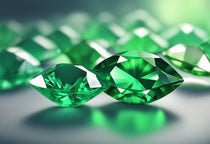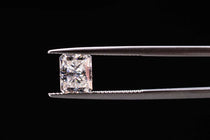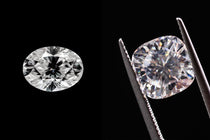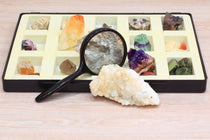Engagement rings symbolize a promise of marriage, a tradition that has been rooted in cultures around the world. In recent years, there has been a growing awareness of the social and ethical implications behind the sourcing of diamonds. This has led to a surge in demand for conflict free engagement rings. These rings guarantee that the diamonds have been ethically sourced, ensuring they have not funded civil wars or been mined using exploitative practices.
When you shop for an engagement ring, it's essential to consider not only the cut, clarity, carat, and color of the diamond but also the origins of it. Conflict free diamonds are typically certified to be free from violence and human rights abuses. This peace of mind allows you to cherish the symbol of your commitment without the shadow of ethical concerns.
By opting for conflict free engagement rings, you take a stand against the human toll associated with conflict diamonds. Jewelry companies have responded to consumers' ethical concerns through initiatives like the Kimberley Process Certification Scheme, which aims to prevent "blood diamonds" from entering the market. The transparency and responsibility in diamond sourcing reflect a broader commitment to global human rights and environmental stewardship.
Conflict-Free Diamond Insights
In an era where ethical consumption is paramount, understanding the origins of diamonds and ensuring they are conflict-free is critical for making informed purchasing decisions that align with your values.
Understanding Conflict Diamonds
Conflict diamonds, often known as blood diamonds, refer to precious stones mined in areas controlled by forces opposed to legitimate, internationally recognized governments. The sale of these diamonds has historically funded conflict and human rights abuses, particularly in African nations such as Sierra Leone. Ethical diamonds are the industry's response, ensuring the financial benefit of these gems contributes positively to the communities involved.
The Kimberley Process Certification Scheme
The Kimberley Process Certification Scheme (KPCS) was established to prevent the flow of conflict diamonds and ensure that diamond purchases do not fund violence. Under this system, member states must certify that shipments of rough diamonds are conflict-free. While KPCS has its critics, it represents a critical step towards transparency in the diamond industry.
- Members: 81 countries
- Implementation: Since 2003
- Compliance: Mandatory for member states
Ethical Sourcing and Traceability
Ethical sourcing is about going beyond the Kimberley Process to guarantee that every diamond sold respects human rights and delivers tangible benefits to the communities from which they originate. Traceability refers to the ability to track the journey of a diamond from mine to market, providing assurance that it is indeed conflict-free. This dedication to traceability is what sets apart jewelers focused on providing ethical options for consumers like you.
- Ethical Sourcing Priorities:
- Labor rights
- Environmental impact
- Economic development
Your choice in purchasing a conflict-free engagement ring demonstrates a commitment not only to your partner but also to the greater good, ensuring that your symbol of love is not tarnished by the pain and suffering of others.
Eco-Conscious Jewelry Materials

When you opt for an eco-conscious engagement ring, you're making a choice that benefits not only your own ethics but also the environment and communities involved in the sourcing and production.
Recycled Precious Metals
Recycled precious metals, including recycled gold and other metals, have become a cornerstone of sustainable jewelry. By choosing rings made from these materials, you sidestep the need for additional mining, which is both energy-consuming and environmentally invasive. Recycled gold and other metals maintain the same quality as newly mined metals but with a significantly reduced environmental footprint.
Ethical Mining and Sustainability
For new precious metals that aren't recycled, ethical sourcing is key. Ethically sourced gems and metals come from mines that prioritize the welfare of their workers as well as the environment. This is reflected in certifications like Fairmined certified gold which ensures that the metal comes from small-scale mines that meet strict standards for sustainability. Similarly, fairtrade or recycled metals offer an assurance that the materials used in your jewelry maintain both ethical labor practices and environmental consciousness.
Design and Craftsmanship

When considering conflict-free engagement rings, the design and craftsmanship behind these pieces play a crucial role. Your choice between custom and handcrafted rings or vintage and antique options significantly affects the aesthetic and ethical considerations of your purchase.
Custom and Handcrafted Rings
Custom and handcrafted rings offer a unique opportunity to bring your personalized vision to life. Craftspeople invest considerable time into each piece, ensuring that your ring is not only conflict-free but also one-of-a-kind. By choosing a handcrafted ring, you're guaranteeing a level of detail and care that mass-produced rings can't match. Whether you're incorporating conflict-free diamonds or other ethically sourced materials, the result is a customized creation that speaks to your values and taste.
Vintage and Antique Rings
Opting for vintage or antique rings is an eco-friendly choice that imbues your engagement with a sense of history. These rings carry stories from the past while being inherently conflict-free due to their age. Your selection can reflect eras known for exquisite craftsmanship, such as the Art Nouveau or Edwardian periods. Every antique ring is distinct, with the intricate workmanship from its original creator, offering vintage charm that cannot be replicated today.
Lab-Grown Diamonds & Alternatives

| Option | Description |
|---|---|
| 1. Lab-Grown Diamonds | Lab-grown diamonds, also known as synthetic or cultured diamonds, are created in a controlled laboratory environment. They share the same physical, chemical, and optical properties as natural diamonds. |
| 2. Moissanite | Moissanite is a naturally occurring mineral, but lab-grown moissanite is also available. It has a different crystal structure than diamonds and exhibits exceptional brilliance and fire. Moissanite is often chosen as an alternative due to its affordability. |
| 3. Cubic Zirconia (CZ) | Cubic zirconia is a synthetic material that mimics the appearance of diamonds. While it is less durable than diamonds, it is a popular and budget-friendly alternative for those seeking a diamond-like look. |
| 4. White Sapphire | White sapphire is a natural gemstone that can be used as a diamond alternative. It is transparent and comes in various sizes. While it lacks the same fire and brilliance as diamonds, it offers a more affordable option. |
| 5. Gemstone Alternatives | Various gemstones, such as morganite, aquamarine, or even colored diamonds, can be chosen as alternatives to traditional colorless diamonds. These options provide unique and colorful alternatives for engagement rings and jewelry. |
| 6. Vintage or Antique Diamonds | Choosing vintage or antique diamonds allows individuals to embrace the charm and character of older diamonds. These diamonds may have unique cuts and characteristics that appeal to those seeking a distinctive piece. |
| 7. Ethically Mined Diamonds | For those who prefer natural diamonds but want to ensure ethical sourcing, selecting diamonds from reputable sources that adhere to ethical mining practices is an option. Look for diamonds certified as conflict-free. |
| 8. Gemstone Alternatives | Various gemstones, such as morganite, aquamarine, or even colored diamonds, can be chosen as alternatives to traditional colorless diamonds. These options provide unique and colorful alternatives for engagement rings and jewelry. |
| 9. Vintage or Antique Diamonds | Choosing vintage or antique diamonds allows individuals to embrace the charm and character of older diamonds. These diamonds may have unique cuts and characteristics that appeal to those seeking a distinctive piece. |
| 10. Ethically Mined Diamonds | For those who prefer natural diamonds but want to ensure ethical sourcing, selecting diamonds from reputable sources that adhere to ethical mining practices is an option. Look for diamonds certified as conflict-free. |
As you explore ethical engagement rings, it's worth considering lab-grown diamonds and natural gemstones for their sustainability and eco-friendly properties. These alternatives offer both environmental benefits and the chance to tailor your fine jewelry to your ethical standards.
Lab-Created Diamond Advantages
Lab-grown diamonds are real diamonds, possessing the same physical, chemical, and optical properties as mined diamonds. The benefits of choosing a lab-created diamond include:
- Sustainability: Lab-grown diamonds are created using less disruptive methods, reducing the environmental impact associated with traditional diamond mining.
- Ethical Assurance: With lab-grown diamonds, you can be confident that your purchase is free of conflict and human exploitation.
Here's a glance at the lab-grown diamond industry focusing on creating diamonds that align with eco-friendly values.
Gemstone Varieties and Benefits
Beyond diamonds, consider other natural gemstones like sapphires, emeralds, and rubies. These gemstones offer a spectrum of colors and qualities that can make your engagement ring stand out:
- Sapphires: Renowned for their durability and array of colors, sapphires are symbolic of loyalty and integrity.
- Emeralds: Prized for their lush green tones, emeralds are often associated with rejuvenation and love.
- Rubies: Celebrated for their deep red hues, rubies represent passion and protection.
Each of these gemstones is a testament to nature's beauty and offers a unique, often more affordable, alternative to traditional diamonds. If you prefer to stay within the realm of diamonds while still being eco-conscious, lab-grown diamonds or other technologies like HPHT or CVD may be the perfect sustainable option for your engagement ring.
Responsible Jewelry Brands
When considering an ethical engagement ring, your choice of jeweler is critical. The brands you'll discover here actively prioritize responsible sourcing and transparency in their operations.
Recognizing Reputable Retailers
To ensure you're dealing with a reputable retailer, look for brands like Brilliant Earth and Catbird, which set high standards for ethical sourcing and provide transparent information about the origin of their gemstones. Check if they offer Canadian diamonds or collaborate with entities like the Greener Diamond Foundation to reinforce their commitment to sustainability.
- Brilliant Earth: Provides Canadamark diamonds, assuring you of responsibly-mined Canadian origins.
- Catbird: Pledges to ethical practices and carries a line of Fairtrade Gold jewelry.
Brands like Vrai and MiaDonna often provide detailed information about their supply chain and the certifications that back their claims of sustainability.
Brand Commitments to Ethics
James Allen is known for a user-friendly online experience and dedication to sourcing conflict-free diamonds, emphasizing transparency in their business model.
- Sofia Kaman: Handcrafts rings with recycled precious metals and ethical gemstones.
- MiaDonna: Partners with the Greener Diamond Foundation, investing in communities affected by the jewelry trade.
Brands that carry Fairtrade gold or have established relationships with ethical gemstone suppliers offer assurance that they adhere to high ethical standards. Look for certifications such as those issued by the Responsible Jewellery Council to confirm ethical practices.
Consumer Education and Services

When considering an engagement ring, it’s crucial to be informed about the origins of the gems and metals used. Companies that focus on sustainable engagement rings often provide extensive resources to help you make an ethical purchase. Transparency in sourcing and a commitment to conflict-free engagement rings are at the forefront of such education efforts.
Guidance on Ethical Purchases
Choosing a sustainable engagement ring involves understanding the journey of the ring's components—from mine to showroom. Non-commissioned jewelry experts can assist you with in-depth knowledge, ensuring that your choice upholds both beauty and ethical standards. For example, companies such as the Blue Nile offer guidance and quality, allowing you to shop with confidence for conflict-free diamonds.
Warranties and Customer Service
After selecting your ring, customer service and guarantees such as a lifetime warranty play a crucial role in maintaining your peace of mind. Many providers of conflict-free engagement rings prioritize personalized service, giving you access to free cleaning, resizing, and even diamond upgrades as part of their warranty programs. These services underscore a long-term commitment to customer satisfaction and the enduring value of your purchase.
Community and Environmental Impact

When you choose a conflict-free engagement ring, you support eco-friendly practices and fair trade, contributing positively to local and global initiatives.
Supporting Local and Global Initiatives
By selecting fair trade jewelry, you ensure that artisans receive fair wages and operate in fair working conditions, minimizing the incidences of child labor. Engagement rings from vendors like Bario Neal not only embody beauty but also represent a pledge to uphold ethical standards within the jewelry industry. This includes sourcing loose diamonds with respect for the environment and the well-being of the communities involved.
- Empowerment Fund: Some jewelers allocate resources to social programs that empower local communities.
- Eco-Friendly Practices: These companies prioritize the use of recycled materials and ensure minimal environmental impact in their production.
Jewelry with a Cause
Brands like MiaDonna advocate for the MiaDonnaHeroes initiative, where a portion of the proceeds supports efforts in providing clean water and education, fostering sustainable community development. By purchasing from such brands, you contribute to an empowerment fund that helps protect and rebuild vulnerable communities.
- Ethical Wedding Bands: You can extend your commitment to sustainability by selecting wedding bands that are also ethically sourced.
- Artisan Craftsmanship: Every purchase honors the craftsmanship of local artisans and their rights, including LGBTQ+ rights.
Selecting an engagement ring becomes a powerful statement when your choice encompasses commitment not only to your partner but also to the values of community care and environmental responsibility.
How to Find the Perfect Ring

When setting out to find the perfect engagement ring, the journey begins with aligning the piece to your personal values and ensuring the aesthetics resonate with your vision.
Selecting the Right Ring for Your Values
Choosing an engagement ring is a significant decision, not just for its emotional value but also for the ethical considerations it entails. The jewelry industry is fraught with ethical dilemmas, notably conflict diamonds. To ensure you are making a socially responsible choice, look for retailers that offer conflict-free engagement rings. These are sourced in ways that don't finance armed conflict or result in human rights abuses. Do Amore, for instance, prides itself on providing ethically sourced rings giving you not just a beautiful piece but also peace of mind.
Keep in mind that wedding bands are also part of this discussion and the same standards should apply to them.
Considering Ring Aesthetics
The aesthetics of your engagement ring should speak to you personally; it’s an adornment that reflects your style and story. Whether you prefer a simple and elegant design or a more elaborate setting, the perfect ring is one that you find visually appealing and that you're comfortable wearing daily. When considering aesthetics, pay attention to:
- Design: Does the style align with your personal taste?
- Craftsmanship: How well is the ring made?
- Detailed work: Are there engravings or unique features?
In the end, finding the perfect engagement ring revolves around a balance between ethical sourcing and aesthetic appeal—both play critical roles in your selection process.
Frequently Asked Questions
In this section, you'll find targeted answers to common queries regarding conflict-free engagement rings, ensuring you have the information to make conscious and informed choices.
How are conflict-free diamonds certified?
Conflict-free diamonds are certified through processes such as the Kimberley Process, which tracks diamonds from mine to market to prevent the trade of illicit stones. Independent audits and certifications by organizations like the Responsible Jewellery Council also contribute to verifying conflict-free status.
What distinguishes ethical ring companies from others?
Ethical ring companies prioritize transparency, responsible sourcing, and sustainable practices. They often provide detailed information about the origin of their diamonds and the conditions under which they were mined and processed.
What should I consider when looking for affordable ethical engagement rings?
When seeking affordable ethical engagement rings, consider lab-grown diamonds or recycled materials that reduce environmental impact and offer a cost-effective alternative to traditionally mined diamonds.
Can you recommend some luxury engagement ring brands that follow ethical practices?
Luxury engagement ring brands that adhere to ethical practices often use conflict-free diamonds and recycled or responsibly mined metals. Brands like Tiffany & Co. and Brilliant Earth have made commitments to ethical sourcing and sustainable practices.
How can consumers ensure engagement rings are sourced from conflict-free zones?
Consumers can request detailed information on the sourcing and supply chain of their engagement rings, look for certification by the Kimberley Process, and choose retailers with a strong ethical policy regarding diamond sourcing.
In what ways do unique ethical engagement rings differ from traditional designs?
Unique ethical engagement rings often feature unconventional materials, such as recycled metals or alternative gemstones, and handcrafted designs that stand apart from mass-market offerings, providing a unique aesthetic while maintaining ethical standards.
Checkout some of our top collections:








